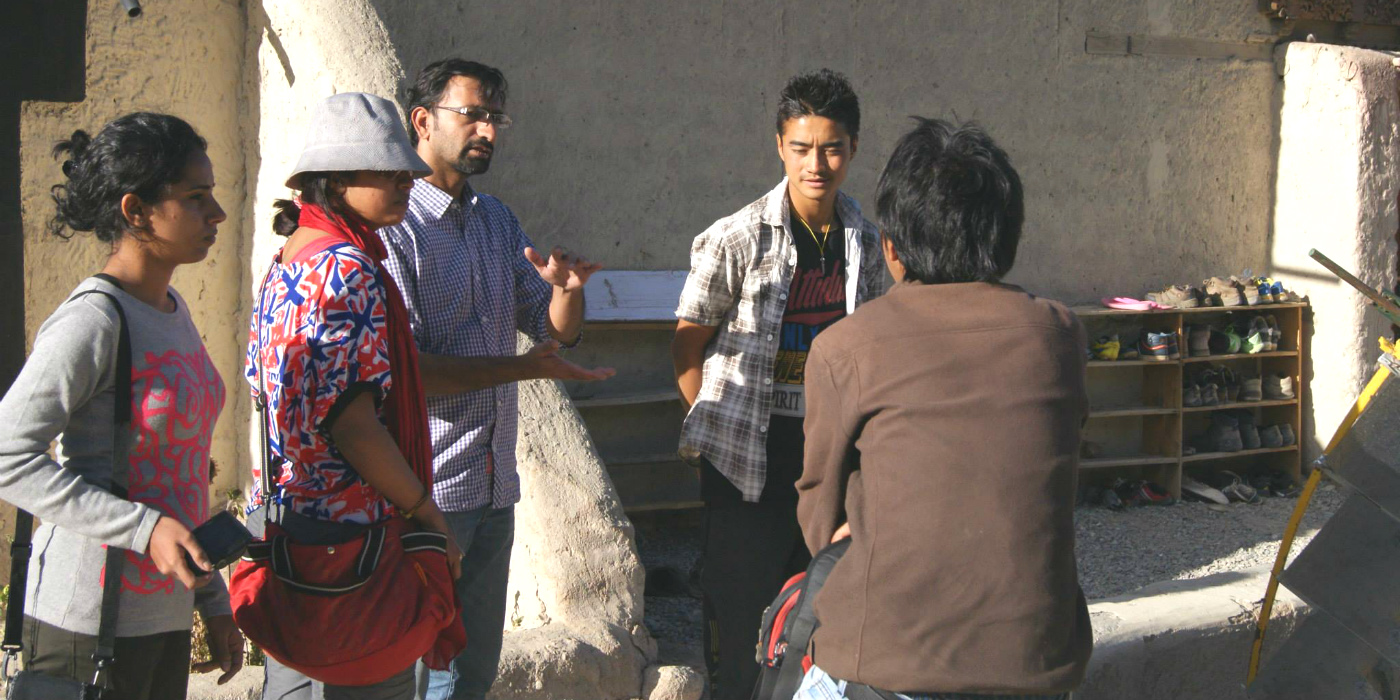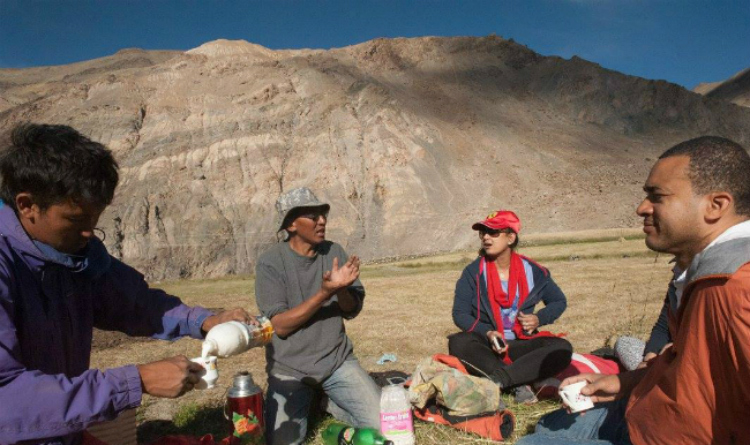
Vinod Sreedhar, Founder, Journeys With Meaning
A big part of Responsible Travel is engaging with local communities. Over the years, these are some practices I’ve found to be helpful:
1. Be genuinely interested in the lives of your homestay hosts and in their local culture. People know when your questions come from genuine intent, and it reflects in their response to your questions. Avoid judgment if the cultural practice is something you happen to disagree with. There is often a deeper social or environmental context that is better understood over a period of time. It really helps to go in with an open mind and a desire to learn, rather than to go with the intent of teaching them or converting them to our way of life. Their ways often work better for them because they have been developed over time in conjunction with local conditions.
For example, in Ladakh the dry-compost toilets were designed as a response to the water scarcity in the high-altitude desert region. The waste accumulates in a room below the toilet until it fills up. It is then allowed to break down completely over a couple of years before it is used as manure in the fields. For people from cities, this may, at first glance, seem primitive. I’ve seen people suggesting that Ladakh needs a sewage treatment system like our cities have. However, this ingenious system is a beautiful closed-loop system where there is zero waste, unlike our urban systems where we flush away our toilet waste so that we don’t have to deal with it, only to find that our waste is leading to severe pollution of the oceans!

2. Try and help out with the cooking and cleaning when staying at a homestay. The family will most likely refuse the help, but they will still appreciate the offer, particularly if you are visiting during a busy time or if they are preoccupied with the harvest or an important festival. You could also help around the farm or at the local school. In remote regions, the support that we take for granted in cities is often not easily available.
If helping around the farm is not feasible for some reason, the least we could do is to make sure we wash our own dishes and help our homestay hosts put away the food and keep the house clean.
3. Be courteous with everyone in the village. Smile and say hello—you never know what interesting encounters it can lead to. And always ask before you take pictures of people—no one likes a camera shoved into their face, just because we think it’s an Instagram-worthy moment. Imagine how you would feel if a tourist with a DSLR and a massive zoom lens follows you around at close quarters, as you’re heading to work or shopping for vegetables in your city!
It’s important to realise that we’re at someone’s home even if it is a holiday destination for us. Being mindful of such small things will help you build a better rapport with the people around. Once you’ve spent some time with them and engaged them in a genuine conversation, they are usually quite happy to be photographed. And if possible, do share the pictures with them before you leave. They will appreciate the gesture.
4. Avoid giving chocolates or trinkets to the little kids around. Instead, see if you can teach them something interesting. They are always curious about visitors and love to engage with new people. And interact with the children in the presence of the family—they will appreciate it. You can also carry some simple colouring books for them, if the family has very young kids. For older children, any age-appropriate book is a good gift that they will appreciate.
These simple-to-follow rules will ensure that you have an enriching holiday and your hosts too enjoy the experience of hosting you!







